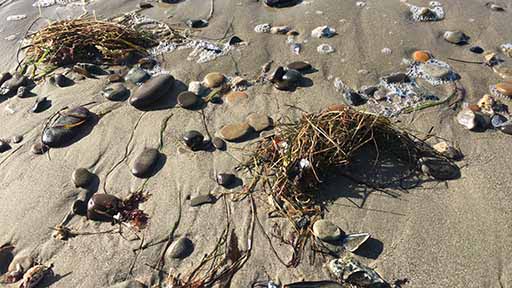This is a ‘long read’ and interesting if you like bugs. Buried deep in the article are some gems about Climate Change… ‘A different dimension of loss’: inside the great insect die-off The Guardian December 14, 2017
Everywhere, invertebrates are threatened by climate change, competition from invasive species and habitat loss. Insect abundance seems to be declining precipitously, even in places where their habitats have not suffered notable new losses. A troubling new report from Germany has shown a 75% plunge in insect populations since 1989, suggesting that they may be even more imperiled than any previous studies suggested. … In the decades since Fisher started making expeditions to Madagascar, deforestation has accelerated, and today only 10% of its virgin forests remain intact. Fisher says that “in 50 years I can’t imagine any forest left in Madagascar”. According to Wendy Moore, a professor of entomology at the University of Arizona, who specialises in ant nest beetles, “There is a sense of running out of time. Everyone in the field who is paying attention feels that.” Because many insects depend on a single plant species for their survival, the devastation caused by deforestation is almost unimaginably huge. “Once a certain type of forest vanishes, thousands, or tens of thousands, or hundreds of thousands of species will vanish,” Erwin told me. “Deforestation is taking out untold millions of species.” … “any long automobile journey,” especially one undertaken in summer, “would result in a car windscreen that was insect-spattered”. In recent years this phenomenon seems to have vanished.
This is another related article cited in the article above… Warning of ‘ecological Armageddon’ after dramatic plunge in insect numbers The Guardian October 18, 2017
The cause of the huge decline is as yet unclear, although the destruction of wild areas and widespread use of pesticides are the most likely factors and climate change may play a role. The scientists were able to rule out weather and changes to landscape in the reserves as causes, but data on pesticide levels has not been collected. … “Insects make up about two-thirds of all life on Earth [but] there has been some kind of horrific decline,” said Prof Dave Goulson of Sussex University, UK, and part of the team behind the new study. “We appear to be making vast tracts of land inhospitable to most forms of life, and are currently on course for ecological Armageddon. If we lose the insects then everything is going to collapse.”
And this is the study sited in the article about ecological Armageddon… More than 75 percent decline over 27 years in total flying insect biomass in protected areas PLOS one October 17, 2018
Malaise traps, deployed over 27 years in 63 nature protection areas in Germany (96 unique location-year combinations) to infer on the status and trend of local entomofauna. Our analysis estimates a seasonal decline of 76%, and mid-summer decline of 82% in flying insect biomass over the 27 years of study. We show that this decline is apparent regardless of habitat type, while changes in weather, land use, and habitat characteristics cannot explain this overall decline.





